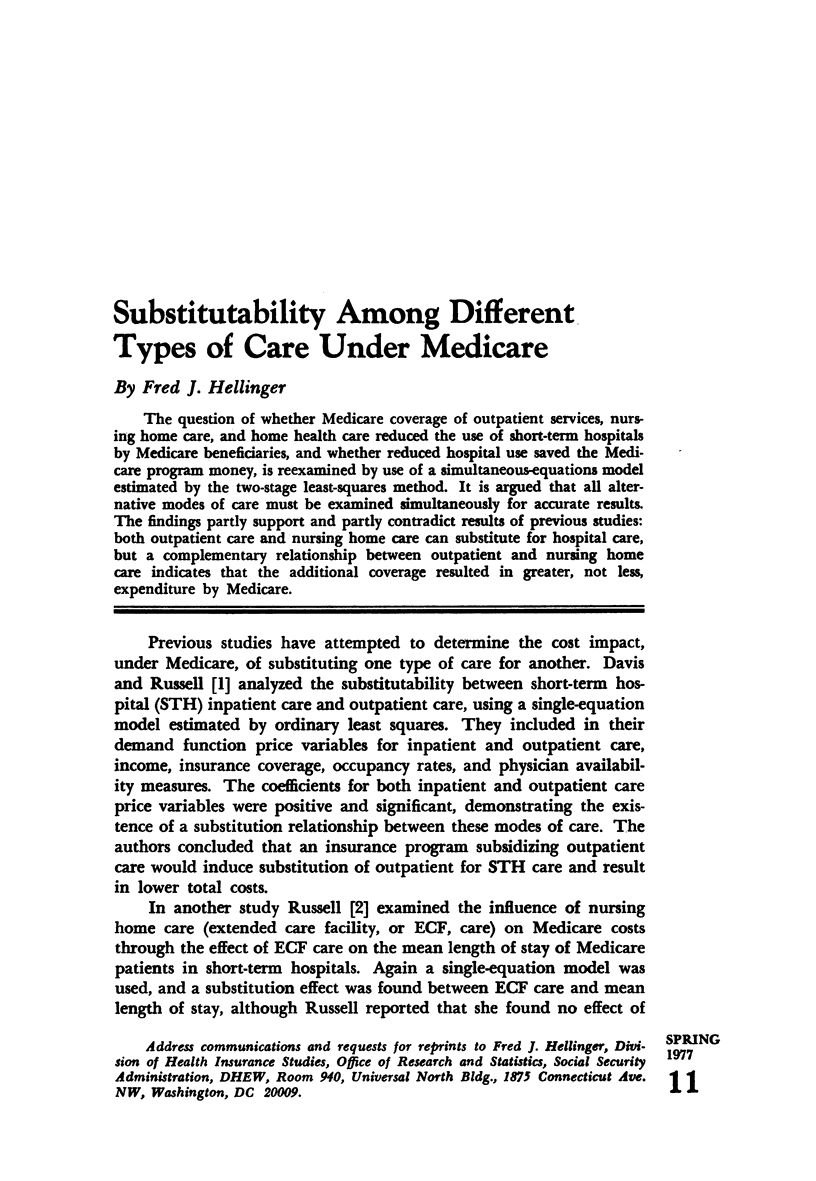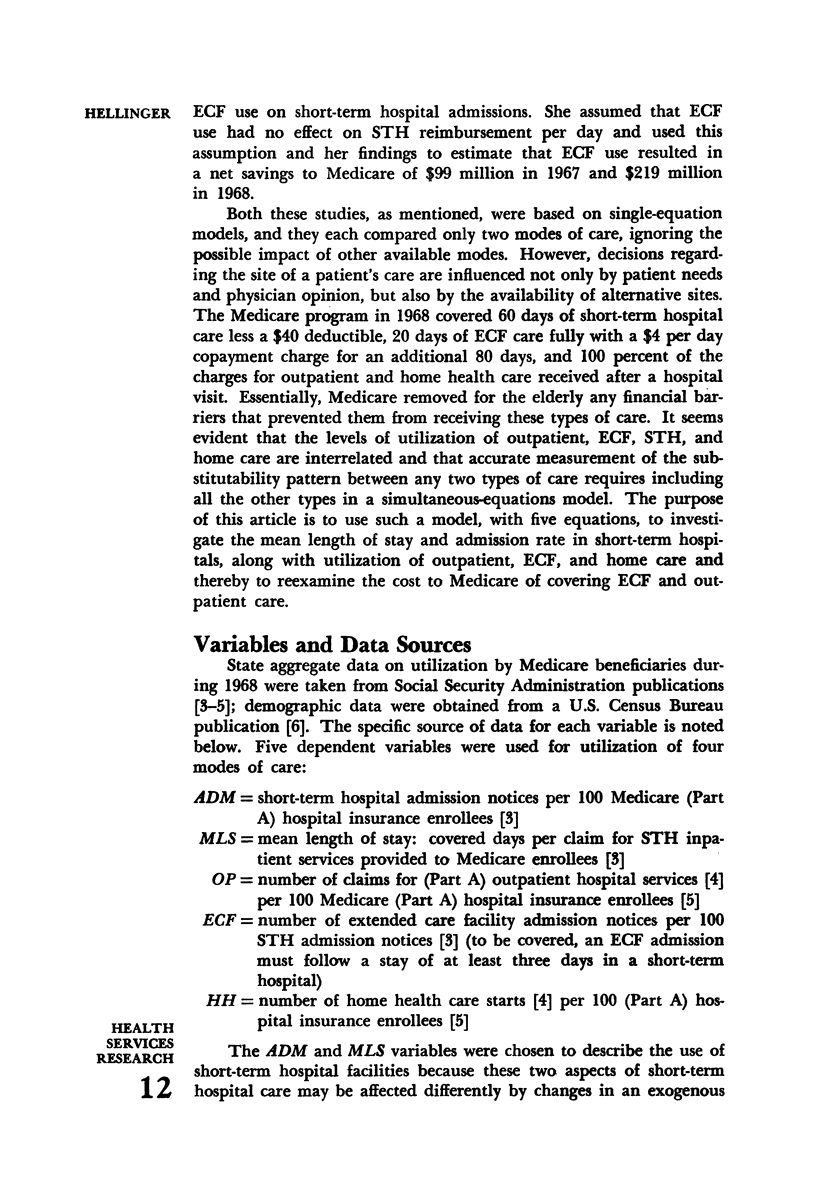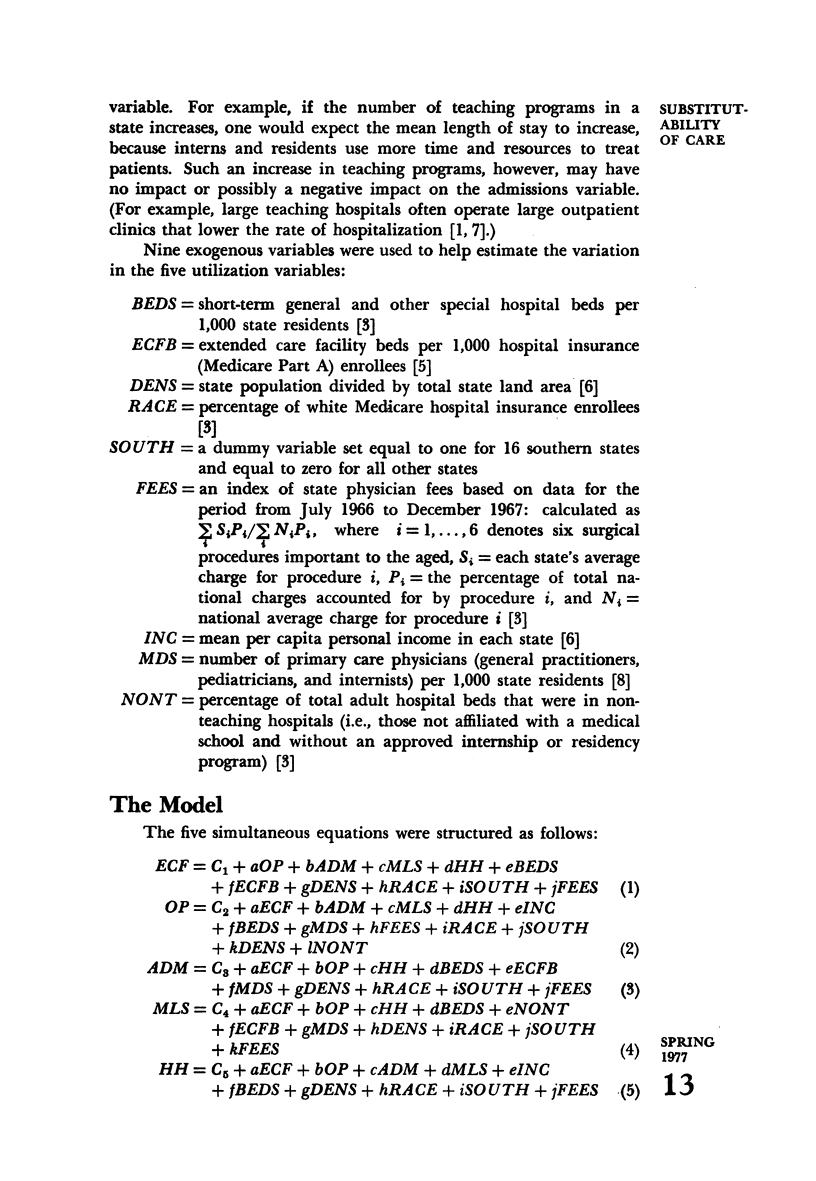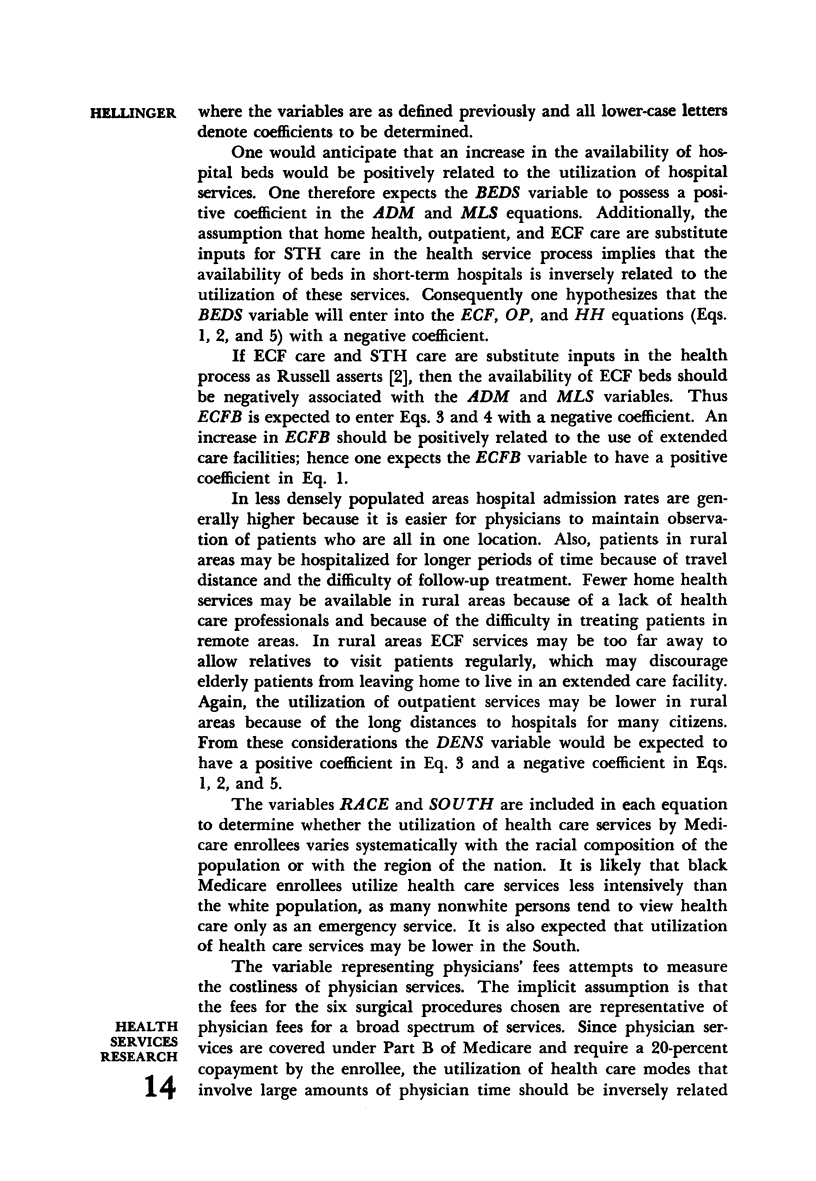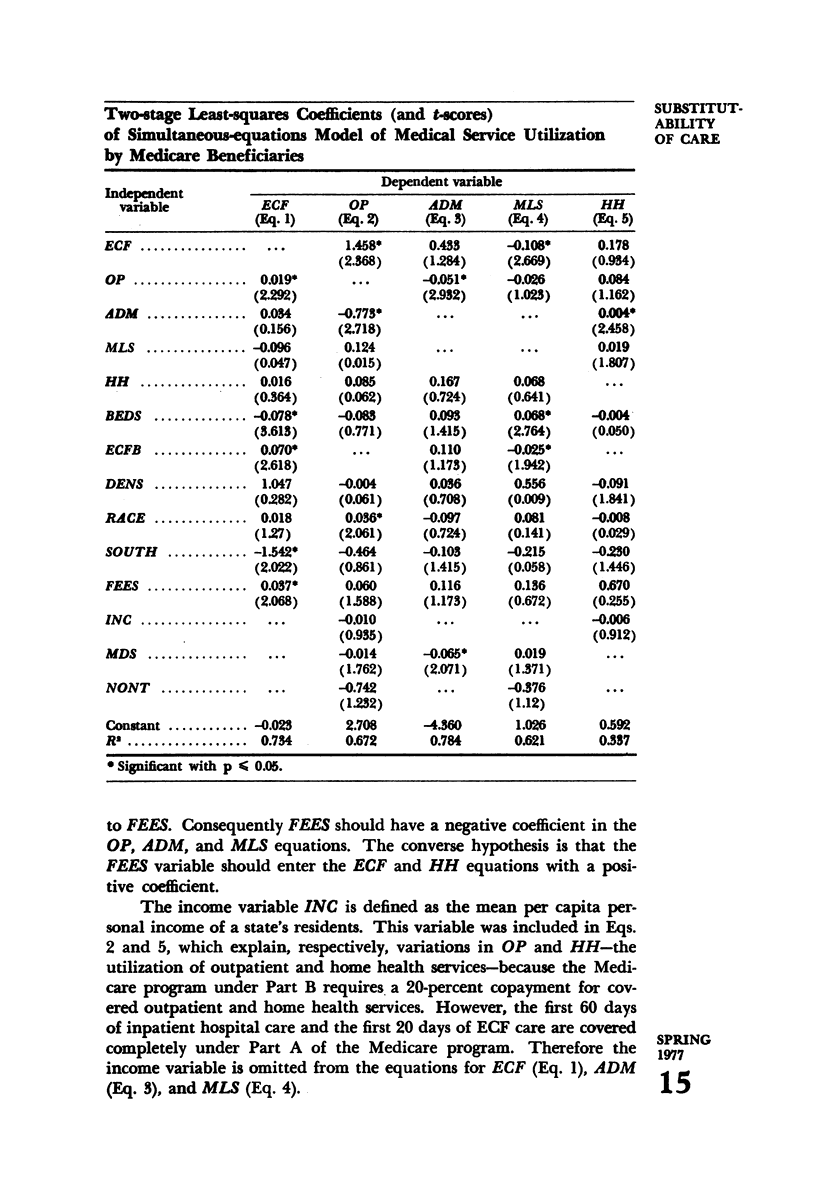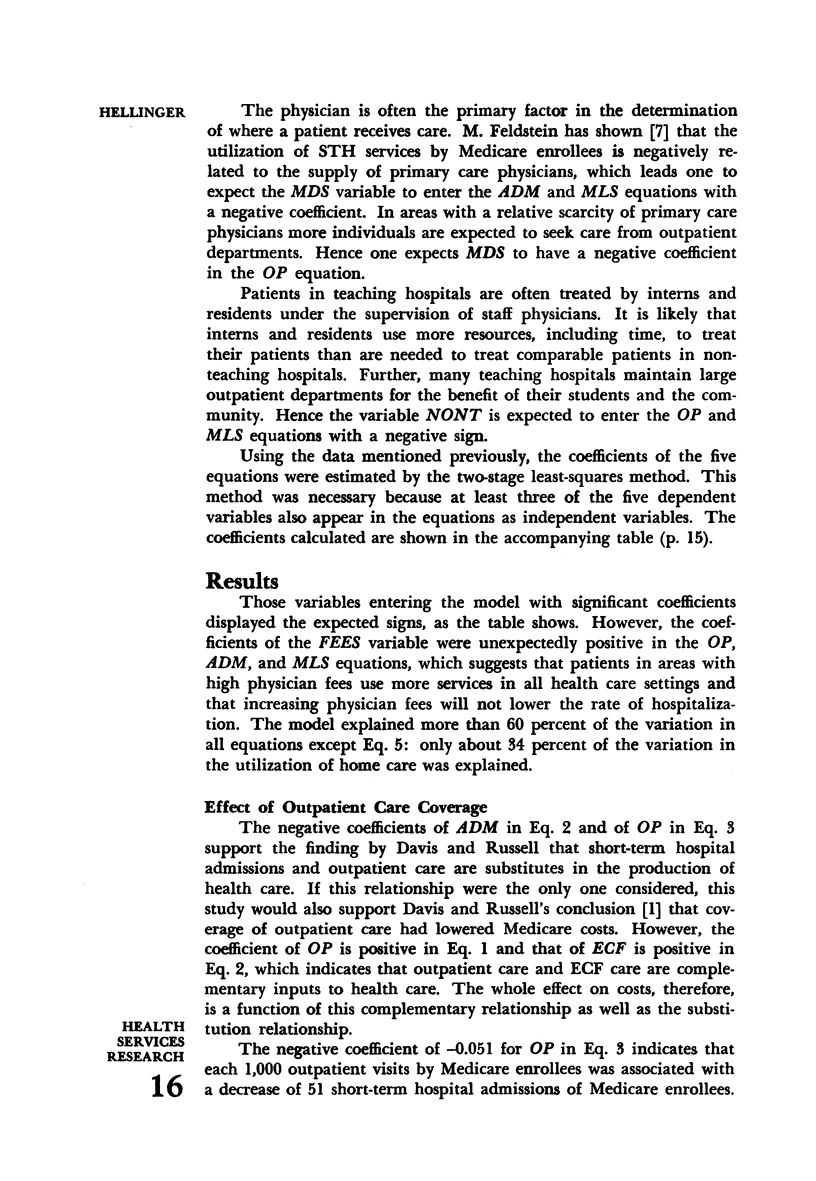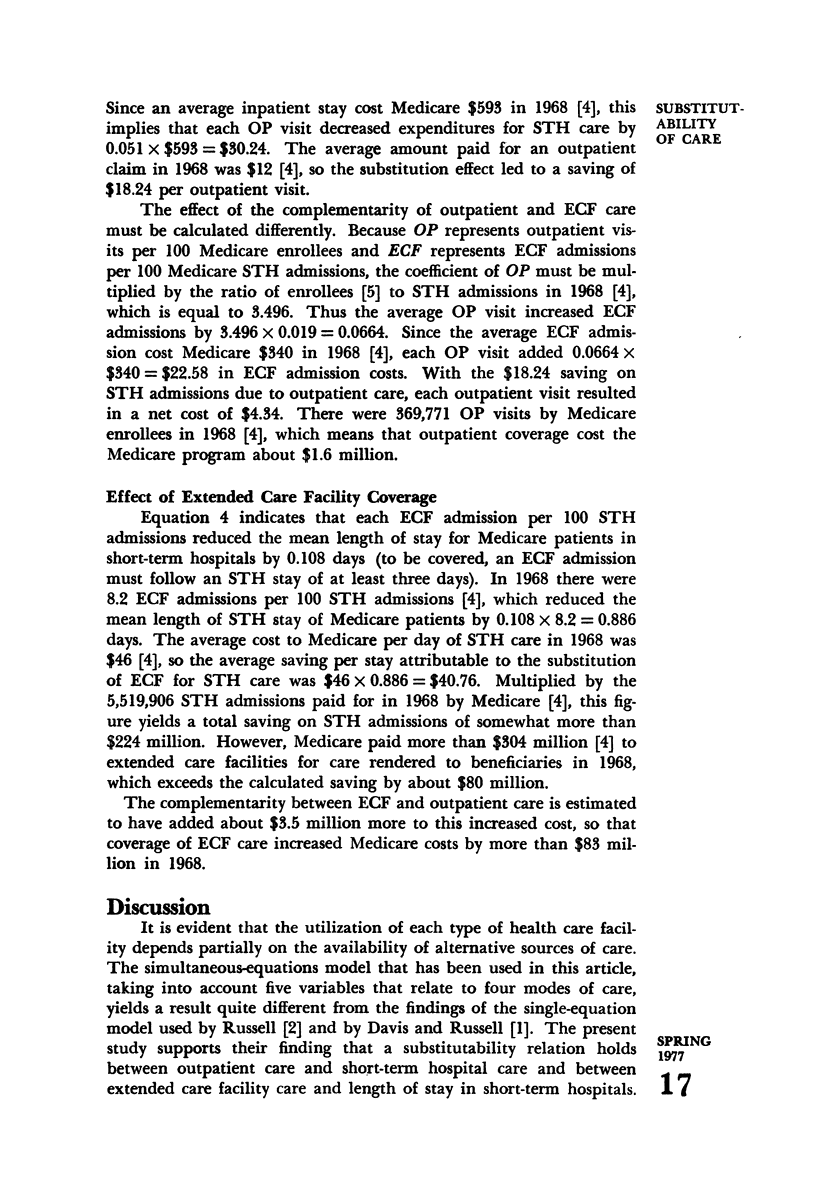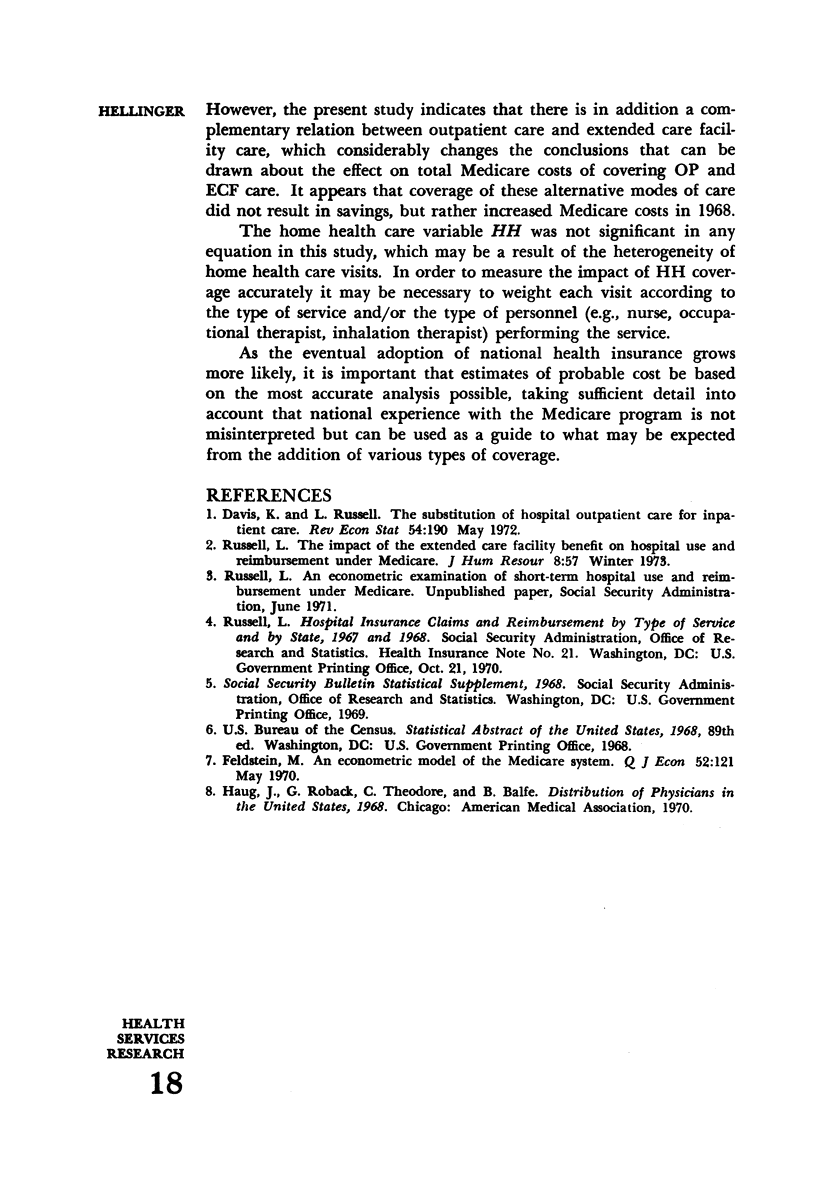Abstract
The question of whether Medicare coverage of outpatient services, nursing home care, and home health care reduced the use of short-term hospitals by Medicare beneficiaries, and whether reduced hospital use saved the Medicare program money, is reexamined by use of a simultaneous-equations model estimated by the two-stage least-squares method. It is argued that all alternative modes of care must be examined simultaneously for accurate results. The findings partly support and partly contradict results of previous studies: both outpatient care and nursing home care can substitute for hospital care, but a complementary relationship between outpatient and nursing home care indicates that the additional coverage resulted in greater, not less, expenditure by Medicare.
Full text
PDF